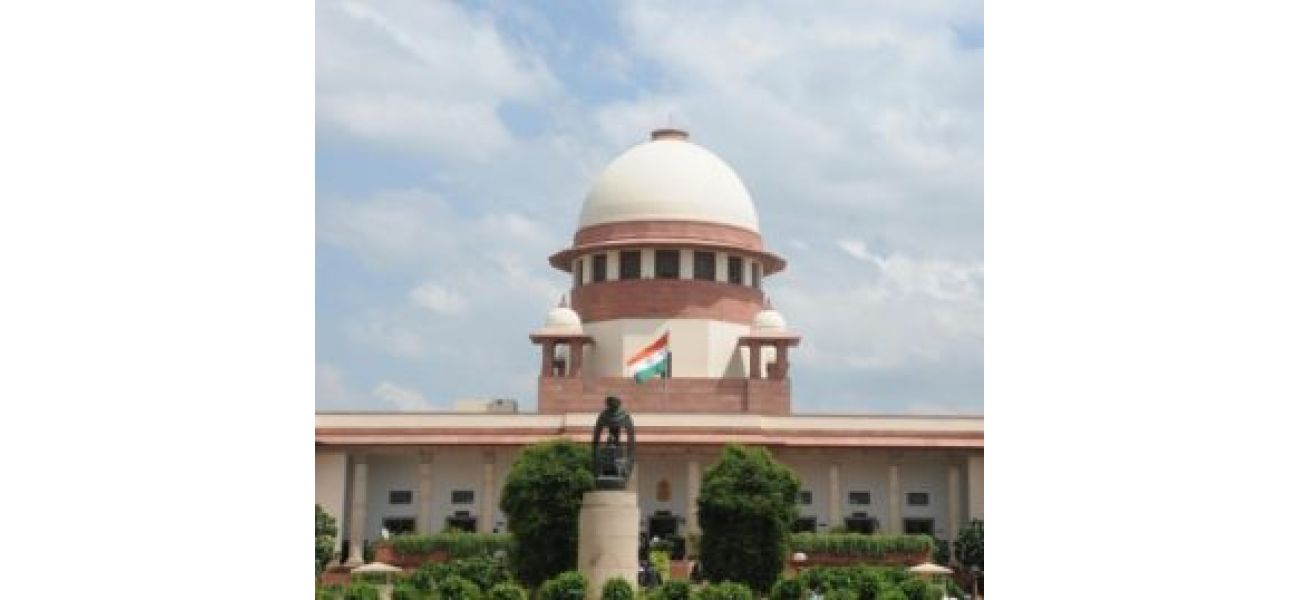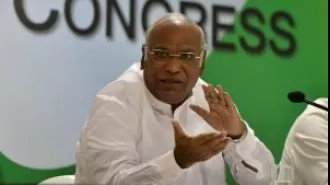SC rejects Punjab's plea against HC decision to expand NRI quota, emphasizes on ending fraud.
The Supreme Court rejected Punjab's appeal to expand the NRI quota for medical and dental courses, stating that the fraudulent practice must end.
September 24th 2024.

The Supreme Court of New Delhi has made a decision regarding the Punjab government's appeal against a previous high court ruling. The high court had dismissed the government's decision to expand the definition of "NRI quota" for admissions in undergraduate medical and dental courses in the state. The apex court emphasized that this fraudulent practice must come to an end now.
On September 10th, the Punjab and Haryana High Court had rejected the AAP-led government's move to include distant relatives, such as uncles, aunts, grandparents, and cousins of NRIs, in the 15% quota for admissions in state medical colleges. The bench, consisting of Chief Justice D Y Chandrachud and Justices J B Pardiwala and Manoj Misra, observed that this was nothing but a money-making scheme. They stated that they would dismiss all petitions and put an end to this NRI business, asserting the primacy of law over precedents.
The court affirmed the high court's verdict, stating that the consequences of this expanded definition are detrimental. Meritorious candidates with significantly higher marks would lose their admission in favor of distant relatives of NRIs, who are settled abroad. The bench firmly stated that this was a complete fraud and questioned the integrity of our education system. The CJI further added that the judges were fully aware of the situation, and the high court had thoroughly examined the case.
The bench dismissed the plea of the state government, stating that they could not lend their authority to something blatantly illegal. The senior advocate representing the Punjab government, Shadan Farasat, argued that other states like Himachal Pradesh and Uttar Pradesh also followed a broader interpretation of the term "NRI quota." They also mentioned that the states have the power to decide how the 15% NRI quota should be granted. The bench directed the central government to take note of this as well.
The high court had issued a detailed judgment rejecting the state government's decision to expand the NRI quota for admissions in Punjab medical colleges. The court acknowledged the submissions that this decision was made to divert seats that would have otherwise gone to general category applicants. They stated that education is not an economic activity, but rather a welfare-oriented endeavor, with the ultimate goal of achieving an egalitarian and prosperous society.
The high court also emphasized that the doctrine of merit and fairness cannot be sacrificed, even for students belonging to the expanded definition of Non-Resident Indian, who possess financial power. They also stated that allowing non-genuine NRIs to be included in the expanded NRI category would render the prohibition on capitation fees useless, as colleges would be free to manipulate the process at their own will.
The high court found the expansion of the "NRI" definition through the state government's corrigendum to be unjustified for several reasons. The original purpose of the NRI quota was to benefit genuine NRIs and their children, but by including distant relatives, this objective is undermined. This also opens the door for potential misuse, allowing undeserving individuals to take advantage of these seats, bypassing more deserving candidates. The high court concluded that this widening of the NRI definition was a step in the wrong direction and not in line with the core intent of the policy.
On September 10th, the Punjab and Haryana High Court had rejected the AAP-led government's move to include distant relatives, such as uncles, aunts, grandparents, and cousins of NRIs, in the 15% quota for admissions in state medical colleges. The bench, consisting of Chief Justice D Y Chandrachud and Justices J B Pardiwala and Manoj Misra, observed that this was nothing but a money-making scheme. They stated that they would dismiss all petitions and put an end to this NRI business, asserting the primacy of law over precedents.
The court affirmed the high court's verdict, stating that the consequences of this expanded definition are detrimental. Meritorious candidates with significantly higher marks would lose their admission in favor of distant relatives of NRIs, who are settled abroad. The bench firmly stated that this was a complete fraud and questioned the integrity of our education system. The CJI further added that the judges were fully aware of the situation, and the high court had thoroughly examined the case.
The bench dismissed the plea of the state government, stating that they could not lend their authority to something blatantly illegal. The senior advocate representing the Punjab government, Shadan Farasat, argued that other states like Himachal Pradesh and Uttar Pradesh also followed a broader interpretation of the term "NRI quota." They also mentioned that the states have the power to decide how the 15% NRI quota should be granted. The bench directed the central government to take note of this as well.
The high court had issued a detailed judgment rejecting the state government's decision to expand the NRI quota for admissions in Punjab medical colleges. The court acknowledged the submissions that this decision was made to divert seats that would have otherwise gone to general category applicants. They stated that education is not an economic activity, but rather a welfare-oriented endeavor, with the ultimate goal of achieving an egalitarian and prosperous society.
The high court also emphasized that the doctrine of merit and fairness cannot be sacrificed, even for students belonging to the expanded definition of Non-Resident Indian, who possess financial power. They also stated that allowing non-genuine NRIs to be included in the expanded NRI category would render the prohibition on capitation fees useless, as colleges would be free to manipulate the process at their own will.
The high court found the expansion of the "NRI" definition through the state government's corrigendum to be unjustified for several reasons. The original purpose of the NRI quota was to benefit genuine NRIs and their children, but by including distant relatives, this objective is undermined. This also opens the door for potential misuse, allowing undeserving individuals to take advantage of these seats, bypassing more deserving candidates. The high court concluded that this widening of the NRI definition was a step in the wrong direction and not in line with the core intent of the policy.
[This article has been trending online recently and has been generated with AI. Your feed is customized.]
[Generative AI is experimental.]
0
0
Submit Comment





